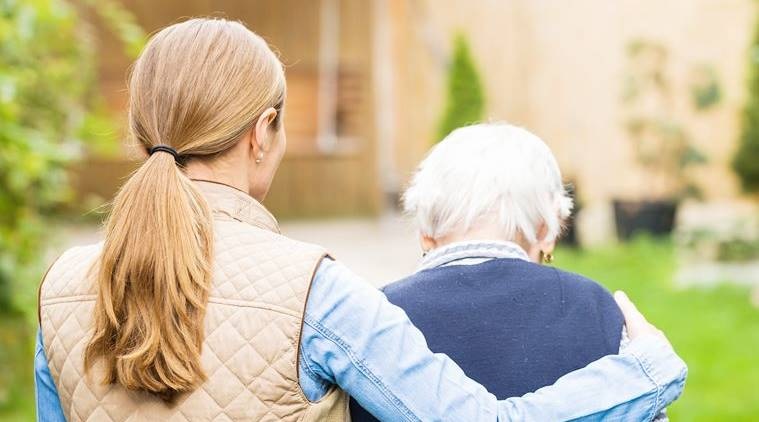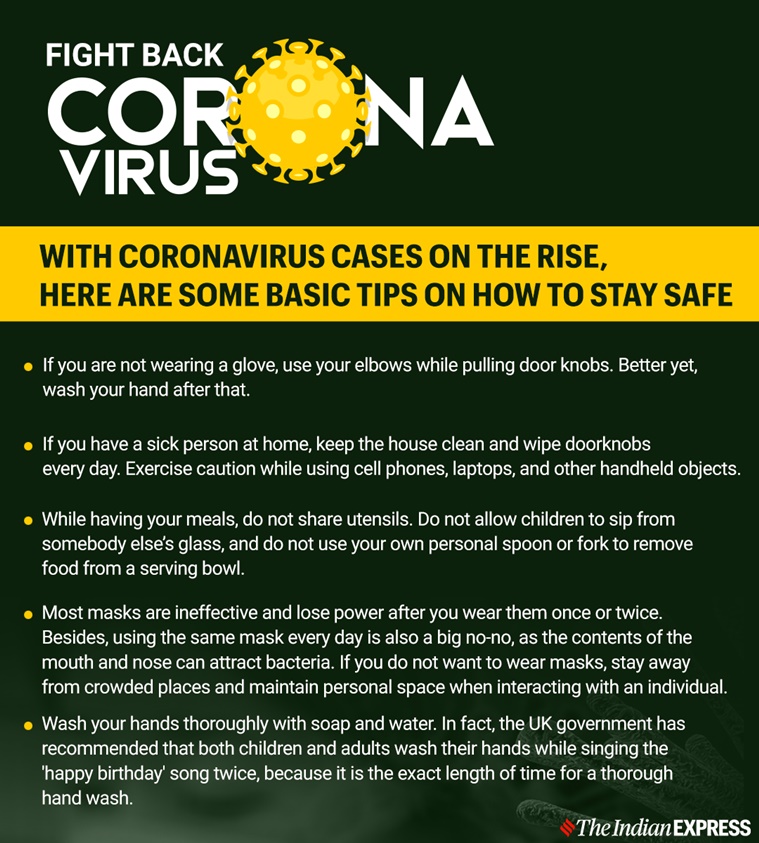Coronavirus and the elderly: All you need to know
People with reduced or compromised immunity, such as the elderly, are more vulnerable to COVID-19.

One of the glaring aspects from the coronavirus casualty from world over and in India suggest that the elderly population, especially above 60 years, is at a heightened risk with Italy, the second most-affected country, reporting 81 as a mean age of those succumbing to the novel coronavirus. In India, even as cases jumped to over 400 with seven deaths reported by the Ministry of Health and Family Welfare, a common thread that is fast emerging is how pre-existing medical conditions can worsen the virus attack, especially in the older population.
According to World Health Organisation (WHO)’s myth-buster guidelines, older people and those with pre-existing medical conditions (such as asthma, diabetes, heart disease) appear to be more vulnerable to becoming severely ill due to the virus.
Given the various theories floating around, indianexpress.com reached out to medical practitioners to understand why the older generation is more vulnerable and what steps can be taken to help them deal with the situation better.
Why are elderly people at a greater risk of coronavirus?
Common signs of coronavirus infection include respiratory symptoms, fever, cough, shortness of breath and breathing difficulties. In more severe cases, infection can cause pneumonia, severe acute respiratory syndrome, kidney failure and even death, as per WHO.
Agreeing that old age itself is a “difficult” phase with several ailments setting in, including diabetes and hypertension, Dr Samrat Shah, MD-internal medicine, Bhatia Hospital Mumbai, noted, “Demographics says that it (coronavirus) hits the elderly maximum.”
According to statistics, mortality in India due to the coronavirus stands at three per cent. Eighty per cent of this three per cent are people above the age of 75 years, said Dr Rahul Bharagava, director and head of department, Hematology, Haemato-Oncology & BMT, Fortis Memorial Research Institute, Gurugram.
“Primarily, co-morbidities such as diabetes, hypertension, heart ailments makes them more vulnerable. Their immunity is low, so co-medication does not help in simplifying their bodies’ responses to the virus. They tend to have an exaggerated reaction to the virus. However, the virus load is often very high in their bodies and their immunity is not able to mount as a result of which lung destruction takes place which leads to multi-organ failure,” he explained.
How can elderly people avoid getting infected?
Apart from following the general guidelines on avoiding crowds, practicing social distancing and regularly washing hands with soap and water, it is very important that the “elderly stay home till further guidelines are issued and limit meeting friends and family members at home, especially if anyone in the family is sick”.
“They should also ensure taking their medicines on time and not to miss the exercise, even if it means strolling from one room to the other. Do not fear or panic, and contact your doctor for any medical guidance,” advised Dr HS Chabbra, chief of spine and medical director, Indian Spinal Injuries Centre, New Delhi.
While elderly people living at home can prevent getting infected by fsollowing the health protocol, those living in commune, such as an old-age homes, remain vulnerable as they receive more visitors such as friends and families, mentioned Dr Deepak Verma, internal medicine, Columbia Asia Hospital, Ghaziabad. “At this point, they should communicate with their friends and families through phone, since meetings would expose the elderly to potential carriers of the virus. One can also explore the older methods such as postcards and letters, but make sure only those duly sanitised reach them. Those living with families can also enjoy the time with some movie-watching sessions or chatting with the young members. The elderly should also be in touch with their doctors for their annual check-ups and, if possible, delay such appointments until the outbreak is controlled,” he said.
What are measures to keep infections like coronavirus at bay
Apart from following the general guidelines on avoiding crowds, practicing social distancing and regularly washing hands with soap and water, it is very important that the “elderly stay home till further guidelines are issued and limit meeting friends and family members at home, especially if anyone in the family is sick”.
“They should also ensure taking their medicines on time and not to miss the exercise, even if it means strolling from one room to the other. Do not fear or panic, and contact your doctor for any medical guidance,” said Dr HS Chabbra, chief of spine and medical director, Indian Spinal Injuries Centre, New Delhi.

Dr Shah advised these pointers:
*Avoid social gatherings, clubs, religious gatherings too.
*Until not necessary, avoid going for your routine check-ups to your doctors.
*As you age, the skin gets more drier which increases the chances of cracks and wounds which opens up the risk of any infection. So sanitise carefully followed by moisturising.
*Wear masks if you are on immuno-suppressants or have a poorly controlled disease.
*Vaccinate yourself with flu and bacterial pneumonia vaccines to prevent other serious infections.
*Last but not the least, stay fit and exercise regularly as that’s the only way to boost your immunity.
Dr Vivek Chandel, wellness manager at Fazlani Natures Nest suggested these pointers
*Wash your hands often with soap and water for at least 20 seconds, especially after you have been in a public place, or after blowing your nose, coughing, or sneezing.
*Flex your elbow, whenever you cough or sneeze.
*Keep your throat moist, drink plenty of water.
*Drink hot water frequently or herbal decoctions (ginger/tulsi/ turmeric).
*Practice breathing exercises, pranayamas (bhramari, nadi shodhana), meditation to keep your mind and body relaxed, as it promotes healing.
*Take enough rest, so that the body can produce cytokines, a major component of the immune system to fight against inflammations.
*Eat healthy and fresh foods and avoid processed ones.
*Expose your body to the sun daily for 20 minutes.
*Include fibre in your diet, eat vitamin C rich fruits and juices (amla/orange/lime) to boost your immunity.
? The Indian Express is now on Telegram. Click here to join our channel (@indianexpress) and stay updated with the latest headlines
For all the latest Lifestyle News, download Indian Express App.
Source: Read Full Article



